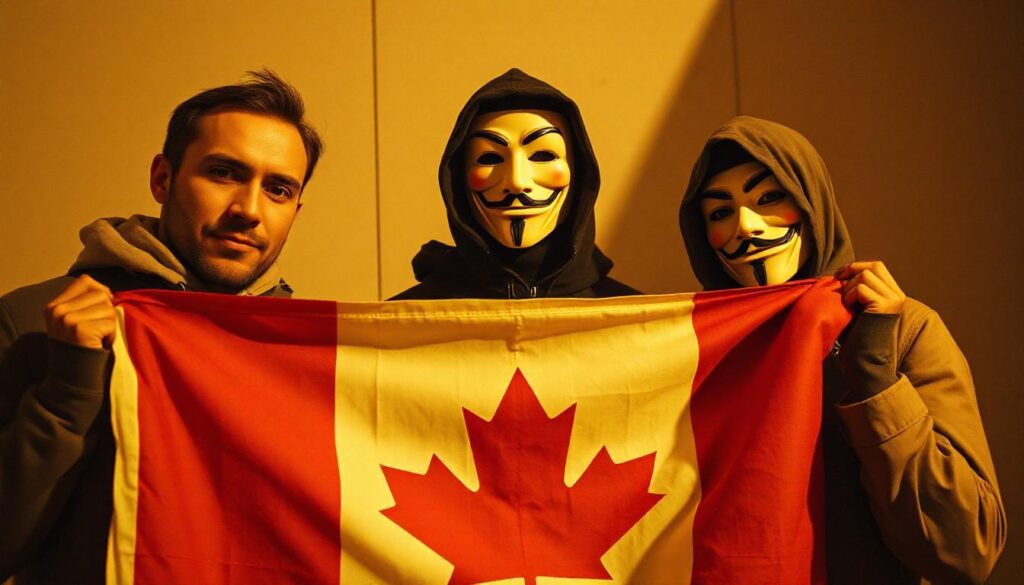The hacker collective known as Anonymous has garnered widespread attention over the years, often characterized by their iconic Guy Fawkes masks and their self-proclaimed mission to fight against injustice and corruption. However, their activities are not without controversy. While some view them as digital vigilantes challenging authoritarianism and censorship, others argue that their methods and actions raise serious ethical and legal concerns. This article seeks to explore whether Anonymous has engaged in activities that can be deemed “bad” and the implications of their actions.

The Origins and Mission of Anonymous
Anonymous first emerged in the early 2000s on the online forum 4chan, known for its chaotic and anonymous nature. Initially, the group was a loose collective of internet users who engaged in pranks and trolling. However, over time, Anonymous evolved into a more organized entity with political and social objectives. They gained notoriety for their high-profile operations targeting organizations and governments they deemed corrupt or oppressive.
The group’s primary mission, as articulated by its members, is to fight against censorship, promote free speech, and expose wrongdoing. Anonymous has taken credit for various campaigns, including the Operation Payback against copyright enforcement, the Operation Tunisia in support of the Arab Spring, and the Operation Chanology against the Church of Scientology.
The Positive Impact of Anonymous
In some instances, Anonymous has achieved notable successes that align with its mission. For instance, during the Arab Spring, the collective played a role in supporting protests against authoritarian regimes by disrupting government websites and assisting activists in circumventing censorship. In this context, their actions were seen as supportive of democratic movements and freedom of expression.
Additionally, Anonymous has conducted various campaigns against child exploitation and cyberbullying. They have targeted websites and individuals involved in illegal activities, such as distributing child pornography. These actions, while controversial, are viewed by some as a necessary intervention in the fight against heinous crimes.
The Controversial Aspects of Anonymous’s Activities
Despite their occasional alignment with noble causes, Anonymous’s methods and actions have often been criticized for crossing ethical and legal boundaries. One of the main controversies revolves around their use of hacking and cyber-attacks as tools for activism. While they argue that their actions are justified by their intentions, many see hacking as a violation of privacy and security, regardless of the target.
For example, Anonymous’s campaign against the Church of Scientology, known as Operation Chanology, involved coordinated attacks on the church’s websites and the release of sensitive information about its members. While the church’s practices have been criticized, the tactics used by Anonymous, such as DDoS (Distributed Denial of Service) attacks, raised concerns about the legality and morality of their methods.
Similarly, the group’s involvement in hacking operations targeting government agencies and private corporations has led to significant disruptions and data breaches. The 2011 hack of the HBGary Federal, a security company, resulted in the exposure of confidential emails and documents. While some of the information revealed was related to questionable practices, the breach itself was a criminal act with potential ramifications for individuals and organizations involved.
Legal and Ethical Implications
The legal and ethical implications of Anonymous’s actions are complex. On one hand, their activities often involve illegal practices such as hacking and data theft, which can have serious consequences for both individuals and institutions. On the other hand, the group’s proponents argue that their actions are a form of civil disobedience, challenging oppressive systems and exposing corruption.
From a legal perspective, hacking and cyber-attacks are crimes in many jurisdictions. The Computer Fraud and Abuse Act (CFAA) in the United States, for instance, criminalizes unauthorized access to computer systems. Anonymous members have faced legal repercussions for their involvement in such activities, including arrests and prosecutions.
Ethically, the debate is more nuanced. Some argue that the ends justify the means when combating injustice, while others contend that breaking the law undermines the principles of justice and democracy. The challenge lies in balancing the need for accountability and transparency with respect for legal and ethical standards.
The Debate Over Anonymous’s Legacy
The legacy of Anonymous is a subject of ongoing debate. Their supporters view them as champions of digital rights and freedom, using unconventional methods to challenge powerful institutions. Critics, however, see them as dangerous anarchists who jeopardize security and privacy in the pursuit of their goals.
Ultimately, whether Anonymous has done “bad” depends on one’s perspective. Their actions have undoubtedly had a significant impact, both positive and negative. While they have highlighted important issues and supported various causes, their methods have also raised questions about legality, ethics, and the potential for unintended harm.
In conclusion, the question of whether Anonymous has done anything bad is not easily answered. The collective’s activities reflect a broader tension between activism and legality, ethics and effectiveness. As society continues to grapple with these issues in the digital age, the legacy of Anonymous serves as a reminder of the complexities involved in fighting for change through unconventional means.